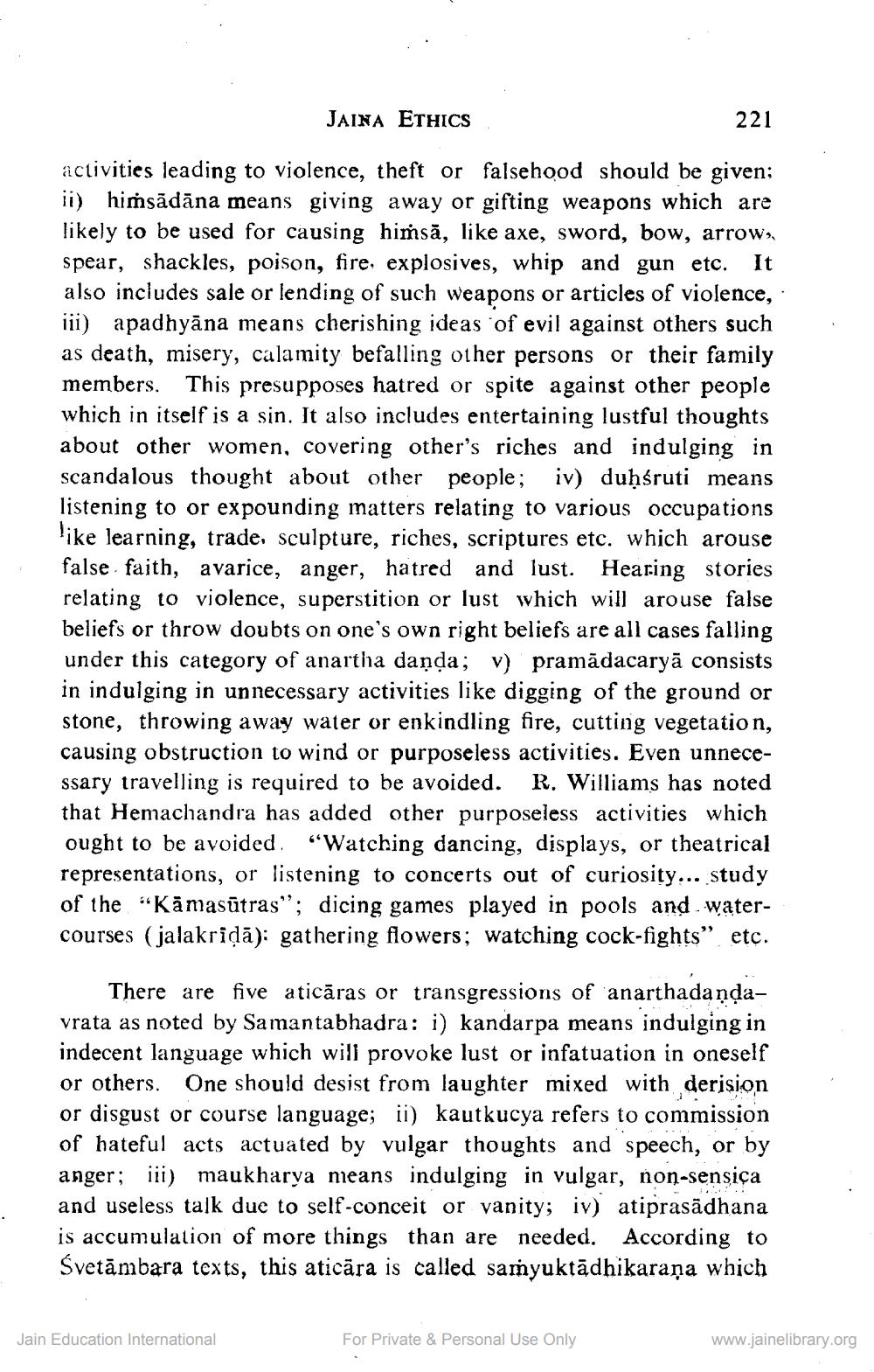________________
JAINA ETHICS
activities leading to violence, theft or falsehood should be given; ii) himsādāna means giving away or gifting weapons which are likely to be used for causing himsă, like axe, sword, bow, arrow, spear, shackles, poison, fire. explosives, whip and gun etc. It also includes sale or lending of such weapons or articles of violence, iii) apadhyāna means cherishing ideas of evil against others such as death, misery, calamity befalling other persons or their family members. This presupposes hatred or spite against other people which in itself is a sin. It also includes entertaining lustful thoughts about other women, covering other's riches and indulging in scandalous thought about other people; iv) duḥśruti means listening to or expounding matters relating to various occupations like learning, trade, sculpture, riches, scriptures etc. which arouse false faith, avarice, anger, hatred and lust. Hearing stories relating to violence, superstition or lust which will arouse false beliefs or throw doubts on one's own right beliefs are all cases falling under this category of anartha danda; v) pramādacaryā consists in indulging in unnecessary activities like digging of the ground or stone, throwing away water or enkindling fire, cutting vegetation, causing obstruction to wind or purposeless activities. Even unnecessary travelling is required to be avoided. R. Williams has noted that Hemachandra has added other purposeless activities which ought to be avoided. "Watching dancing, displays, or theatrical representations, or listening to concerts out of curiosity... study of the "Kamasutras"; dicing games played in pools and watercourses (jalakriḍā); gathering flowers; watching cock-fights" etc.
Jain Education International
221
There are five aticāras or transgressions of anarthadandavrata as noted by Samantabhadra: i) kandarpa means indulging in indecent language which will provoke lust or infatuation in oneself or others. One should desist from laughter mixed with derision or disgust or course language; ii) kautkucya refers to commission of hateful acts actuated by vulgar thoughts and speech, or by anger; ii) maukharya means indulging in vulgar, non-sensica and useless talk due to self-conceit or vanity; iv) atiprasadhana is accumulation of more things than are needed. According to Svetambara texts, this aticära is called samyuktādhikaraṇa which
For Private & Personal Use Only
www.jainelibrary.org




